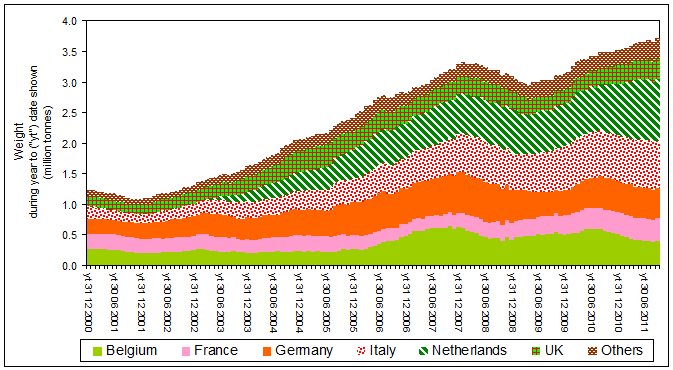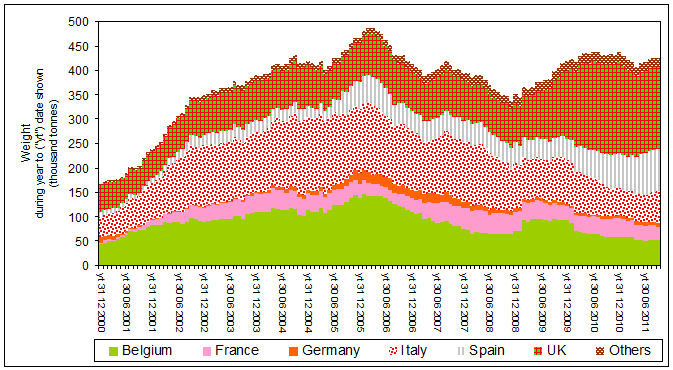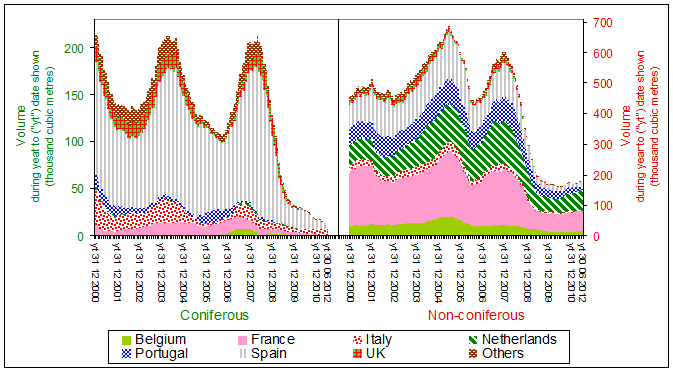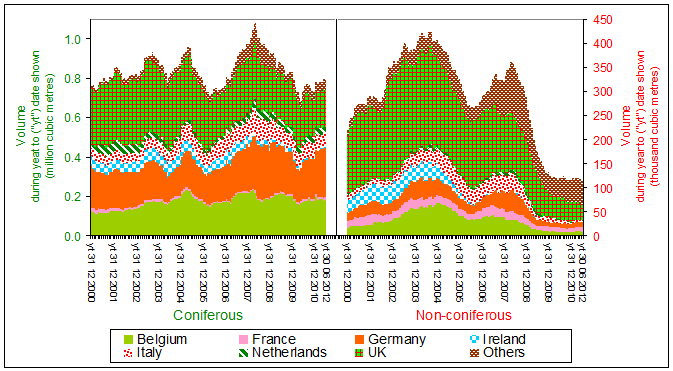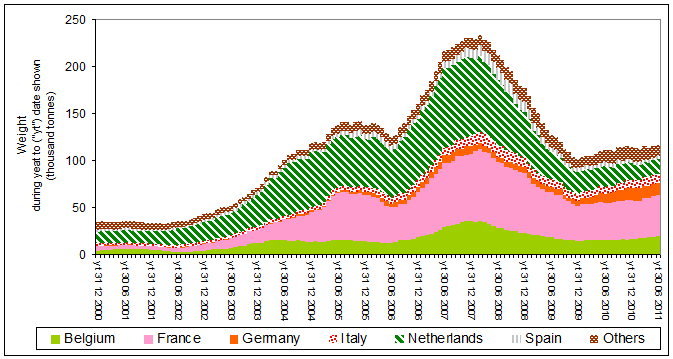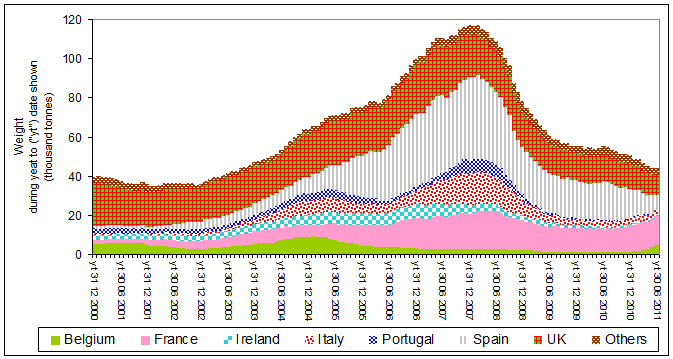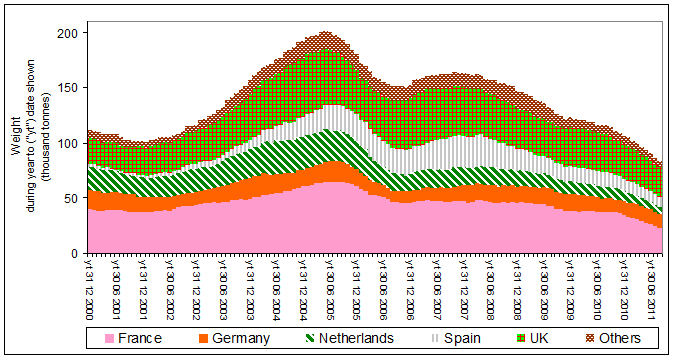|
|
||
|
Brazil UNDER CONSTRUCTION EU imports from Brazil: Paper Sector: 1) - General considerations: Although much of Brazil's pulp production is FSC-certified, formal complaints have been made to the FSC alleging that much of that production is neither sustainable nor warrants FSC-certification[-][¶5], in at least one case it is also illegal[¶7]. Other major producers of pulp are alleged to be (or have been) complict in human rights abuses (concerning their plantations)[-]. Importers who do not wish to be associated with human rights abuses, loss of livelihoods and the like should consider avoiding such supplies or paper made at least partly from that pulp - irrespective of whether those supplies are illegal. The two largest pulp producing groups in Indonesia have substantial business presence in Brazil[-][-], one as a producer and exporter of dissolving pulp[-]. Pulp
Paper
Timber
Sector: Sawn wood
Plywood
Mouldings
Joinery
Wooden furniture
Other Sectors: Outside the timber and paper sectors, enterprises which use iron or steel should assess whether their raw material has been supplied by groups known to severely damage the environment and livelihoods, including through their use of charcoal[-] and plantations[-] for refineries and forced labour [¶7 p120]. One such group is particularly prominent in Brazil.[- -] Similarly, enterprises which use cellulose (particularly viscose[¶3]) other than for paper should consider at least one of the groups which supply the pulpwood and pulp from which this is made and the sustainability and climate change impact of their palm oil businesses.[- -]
|
||
|
|
||

